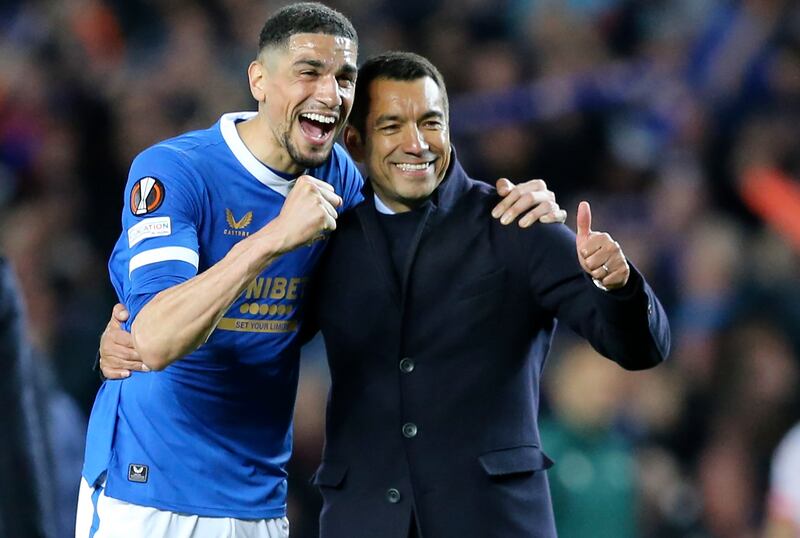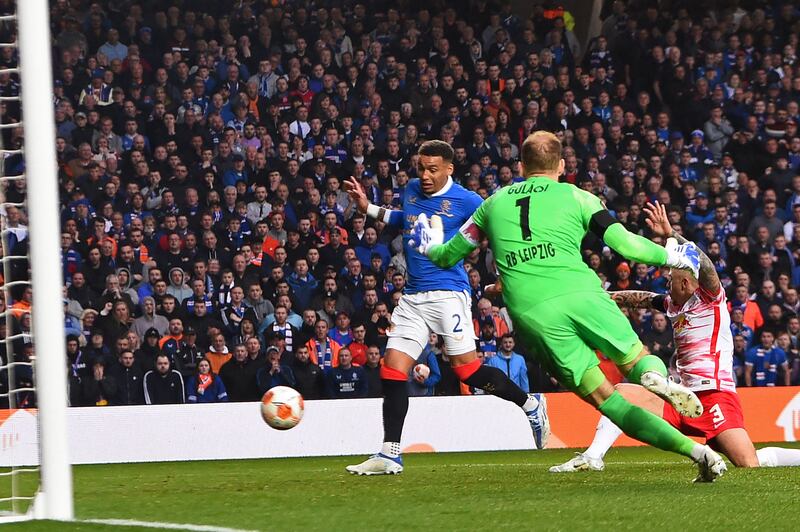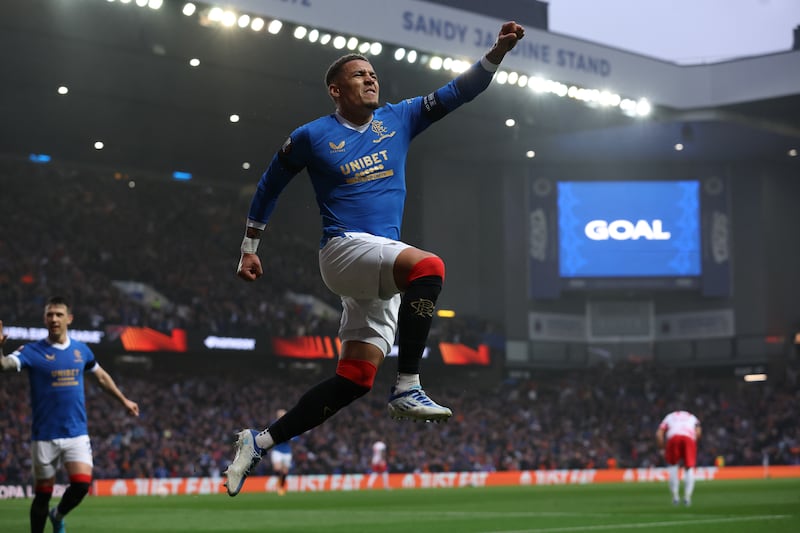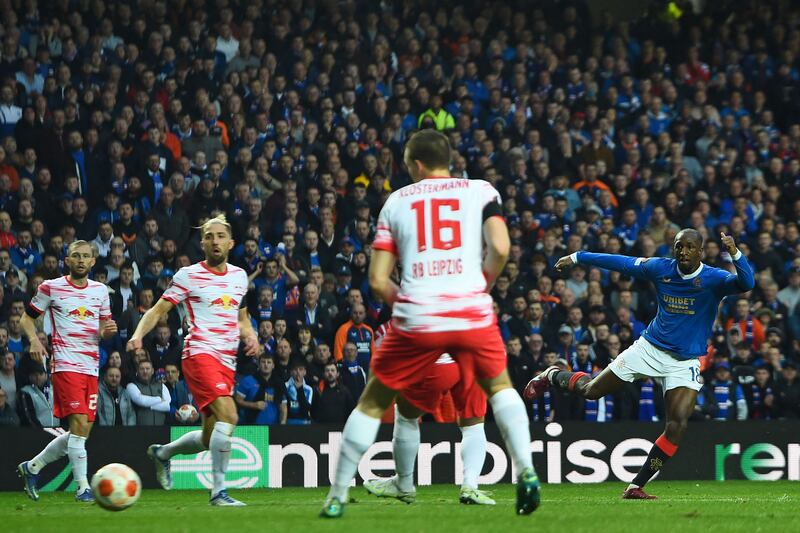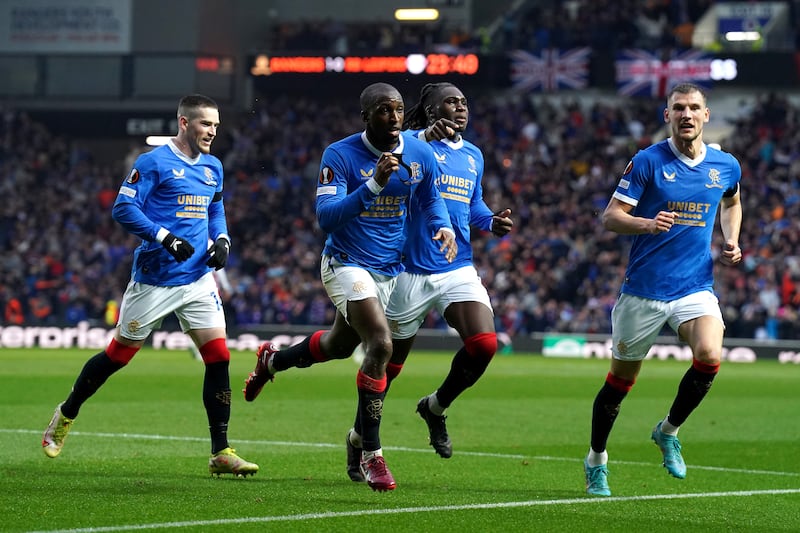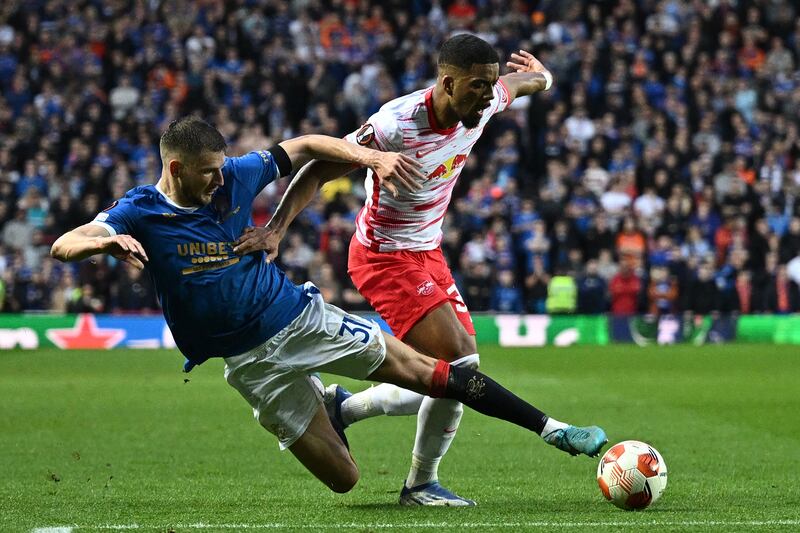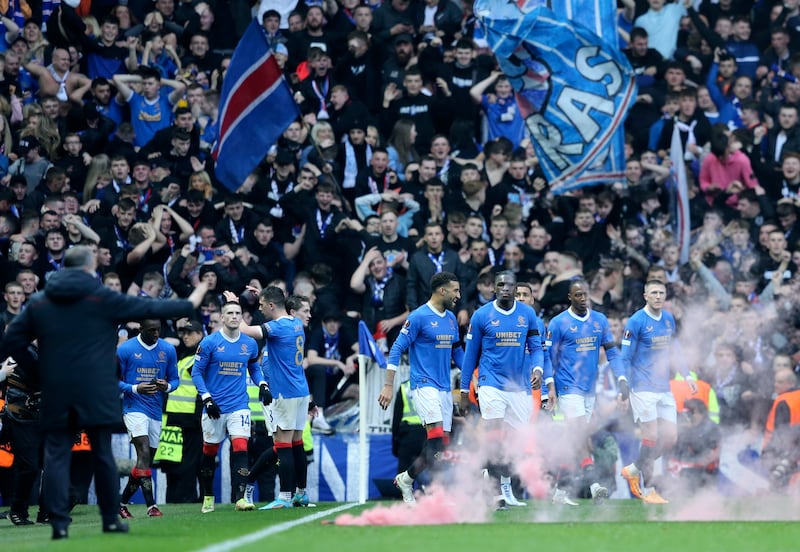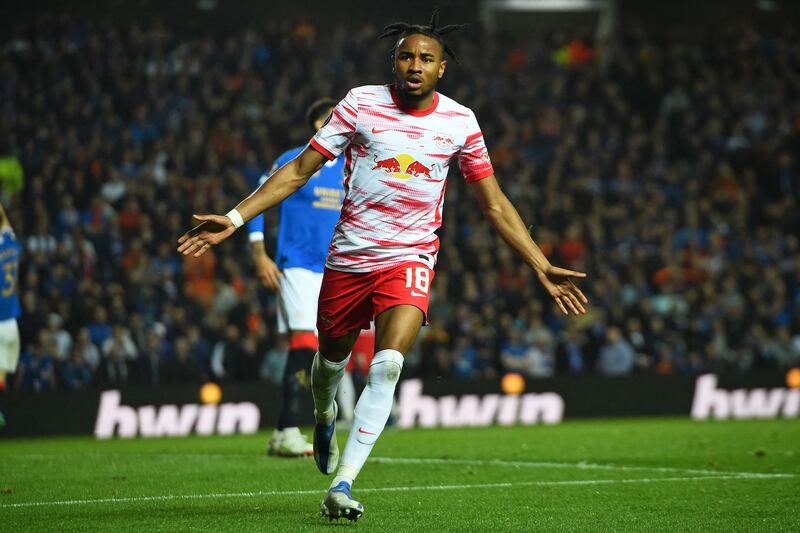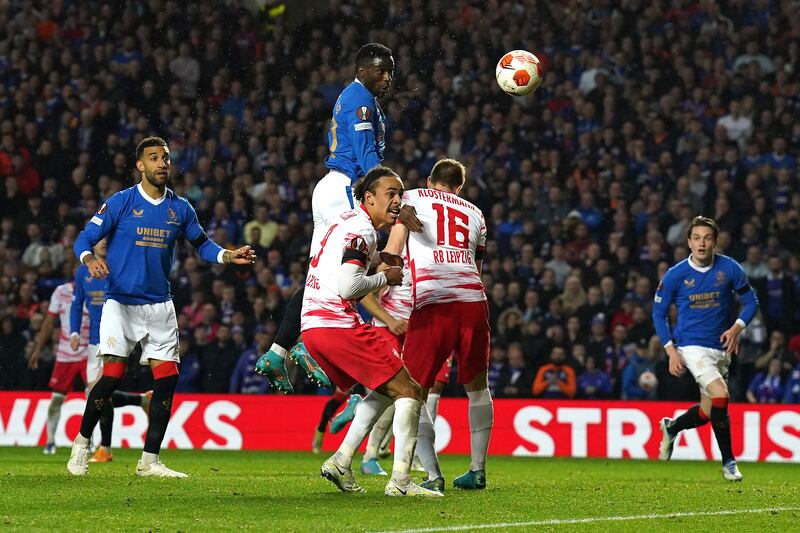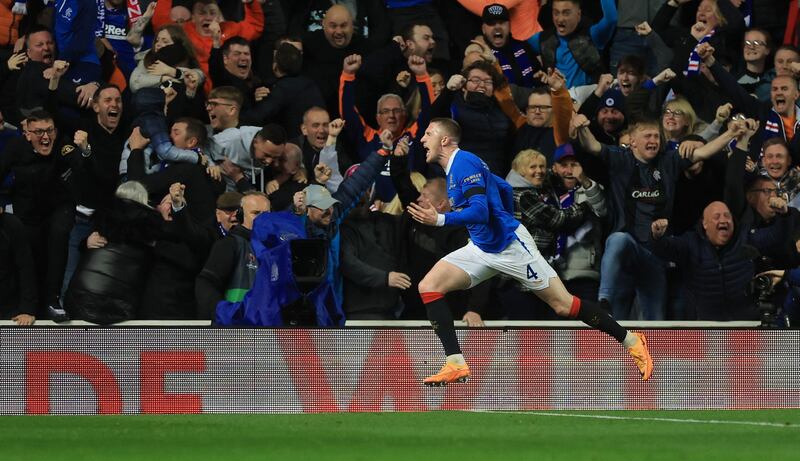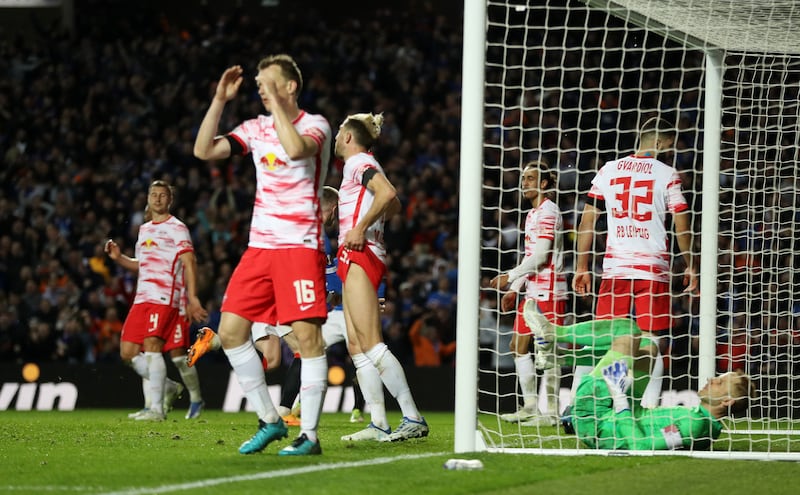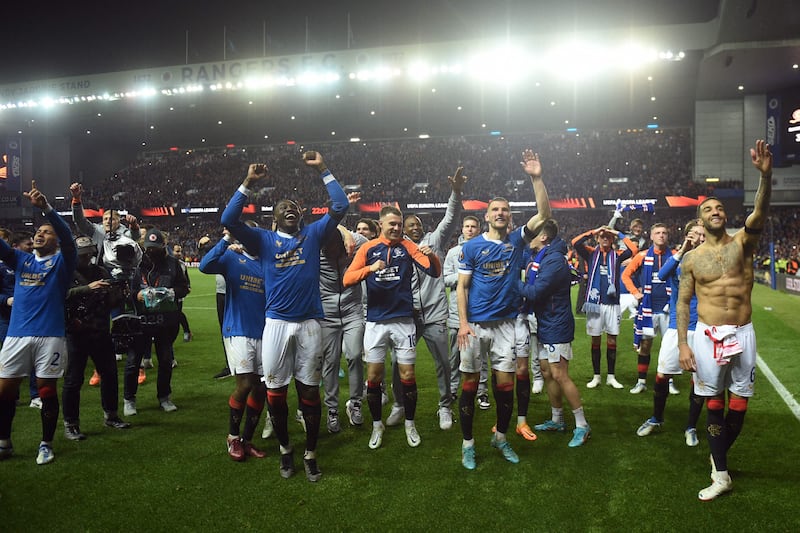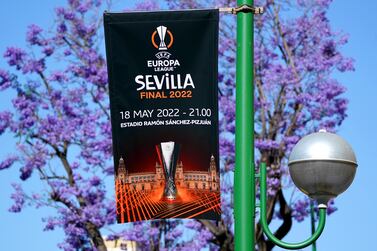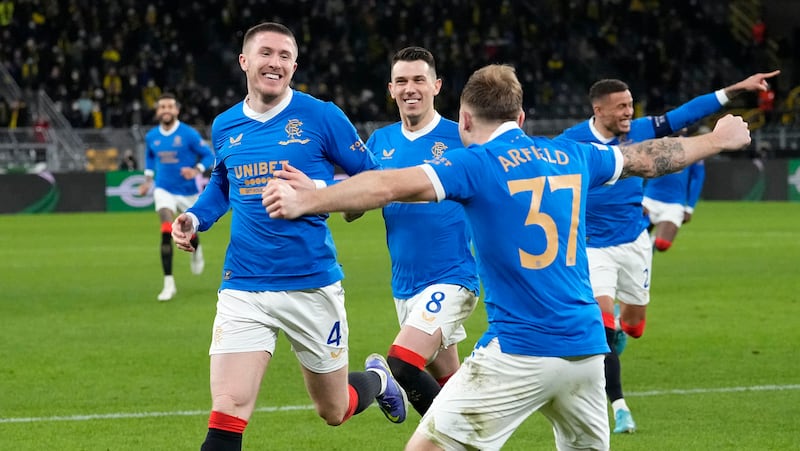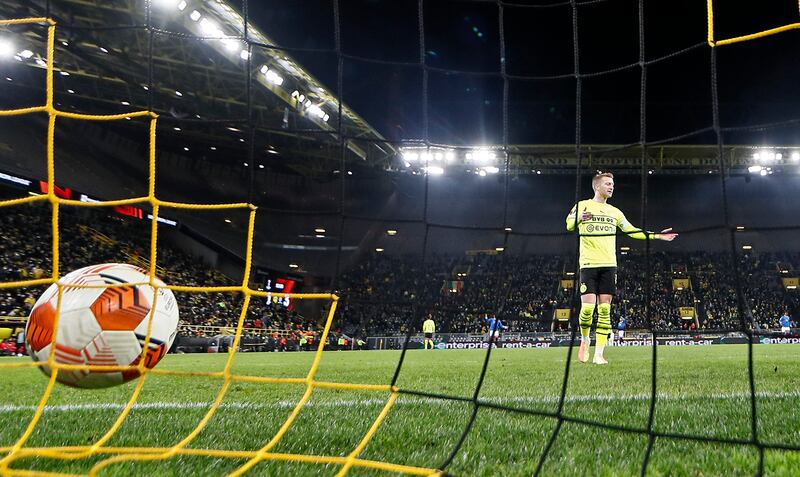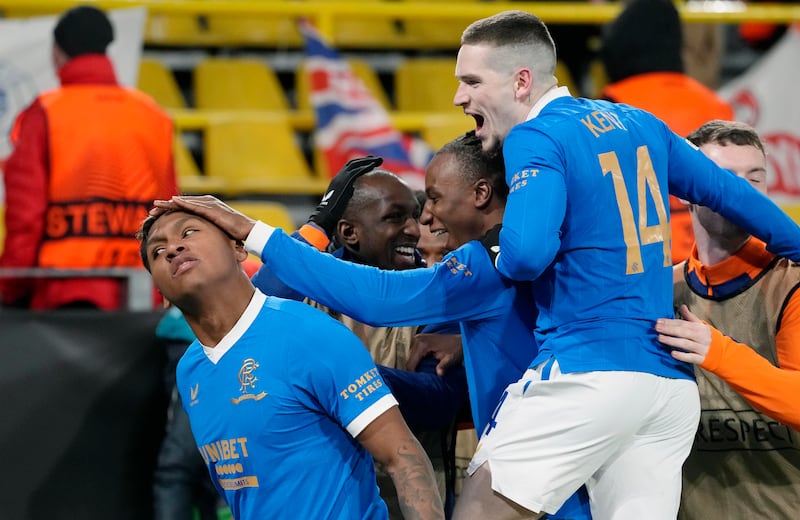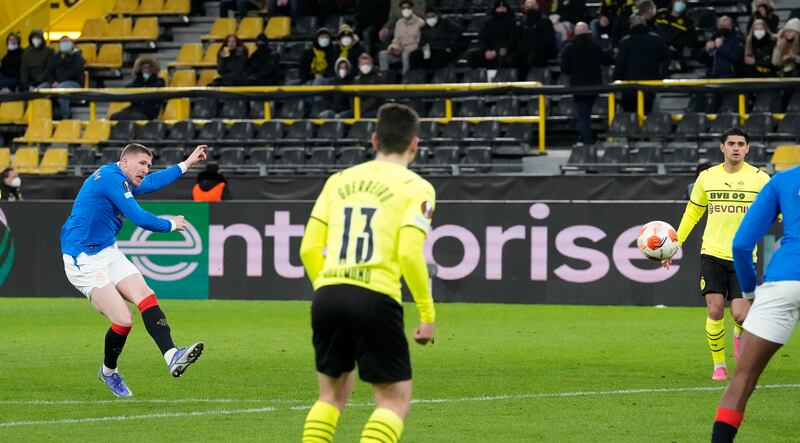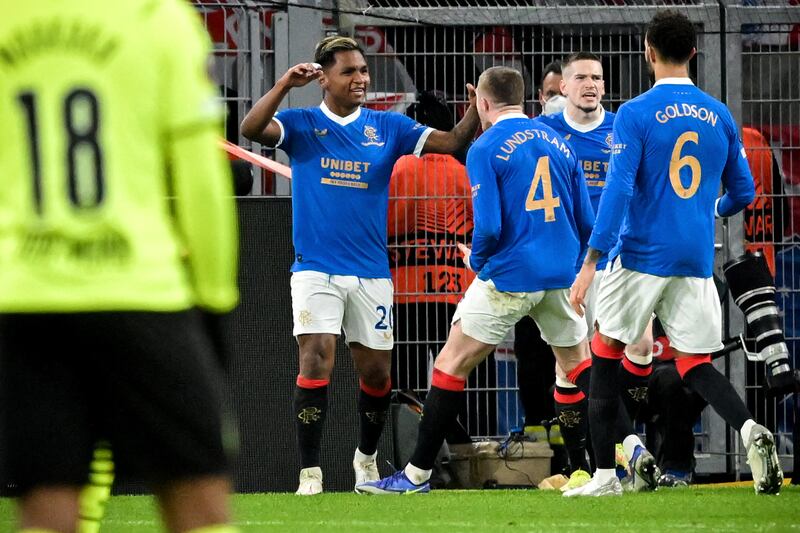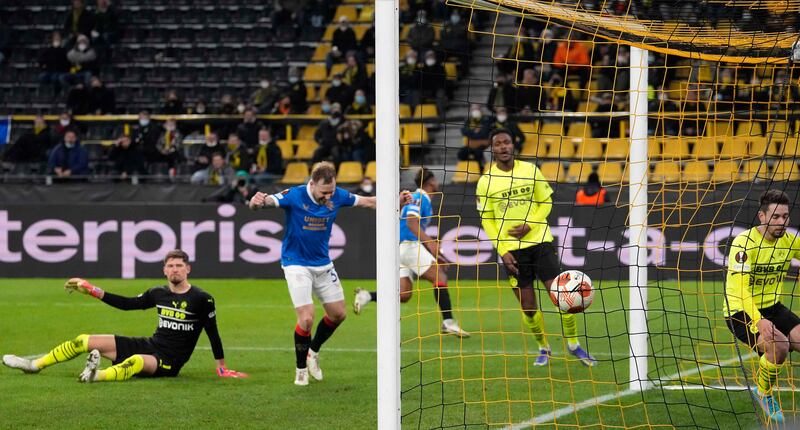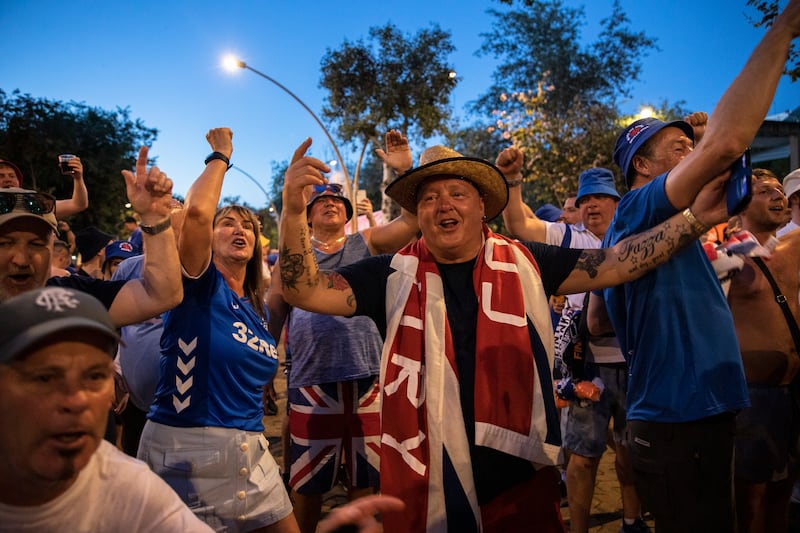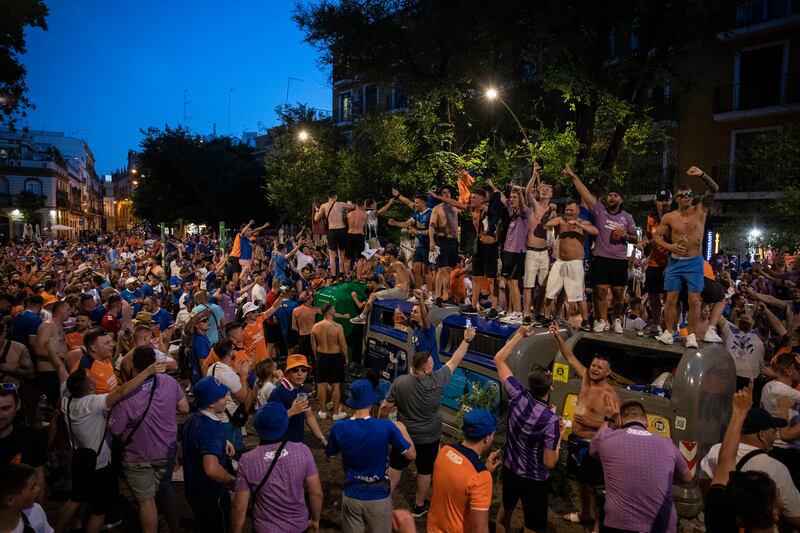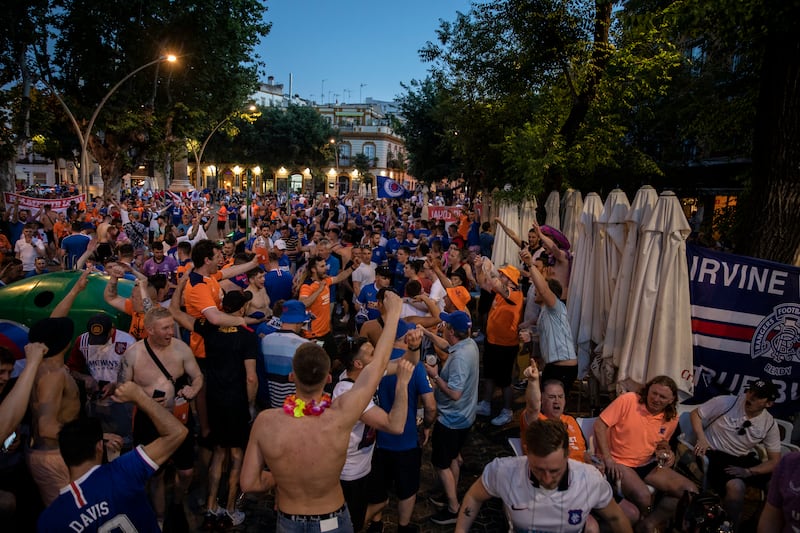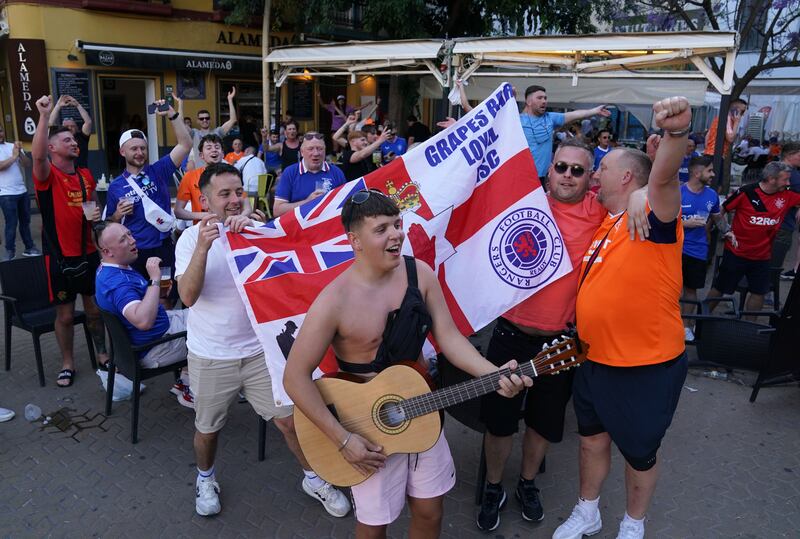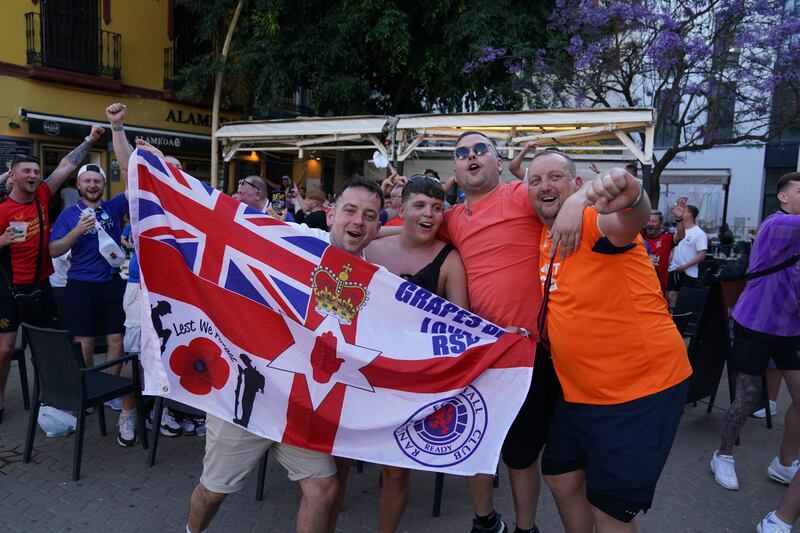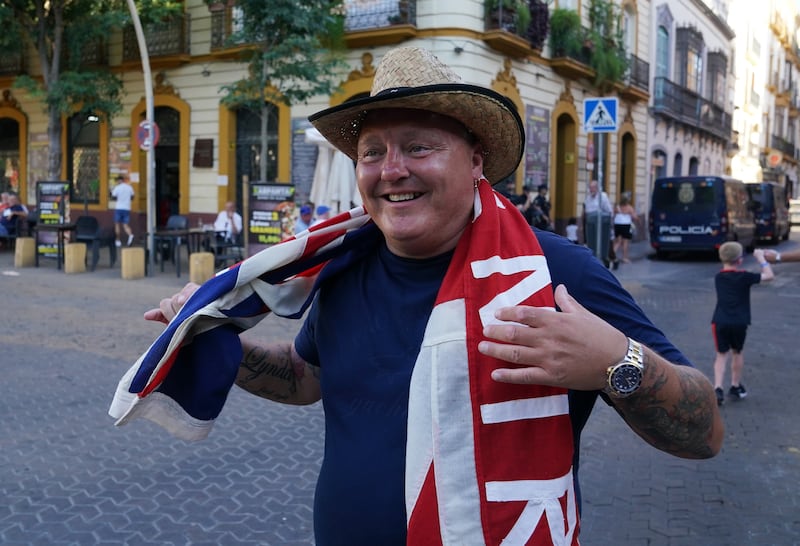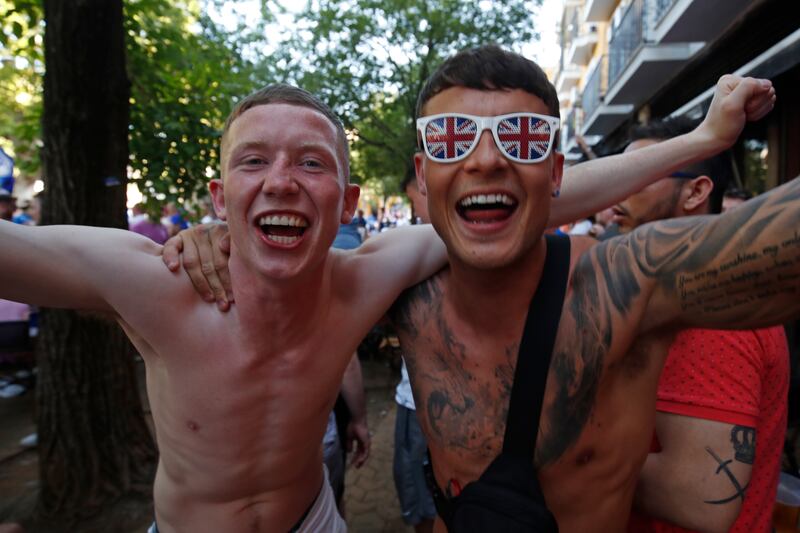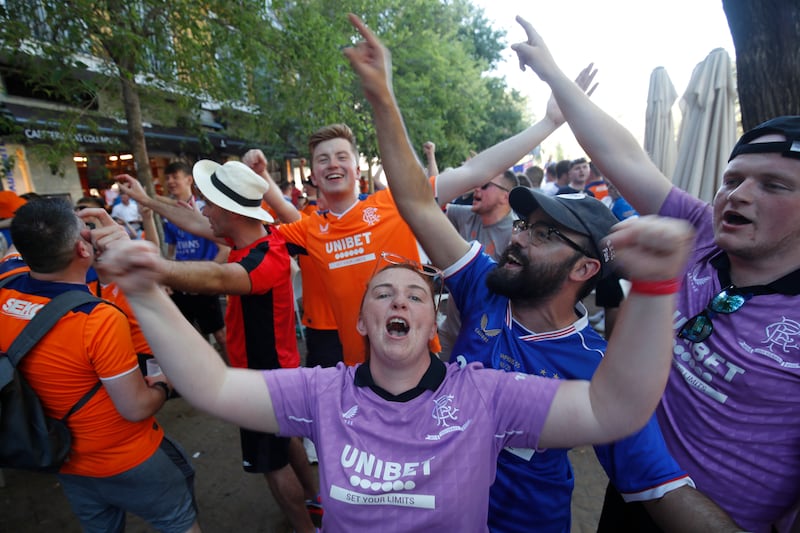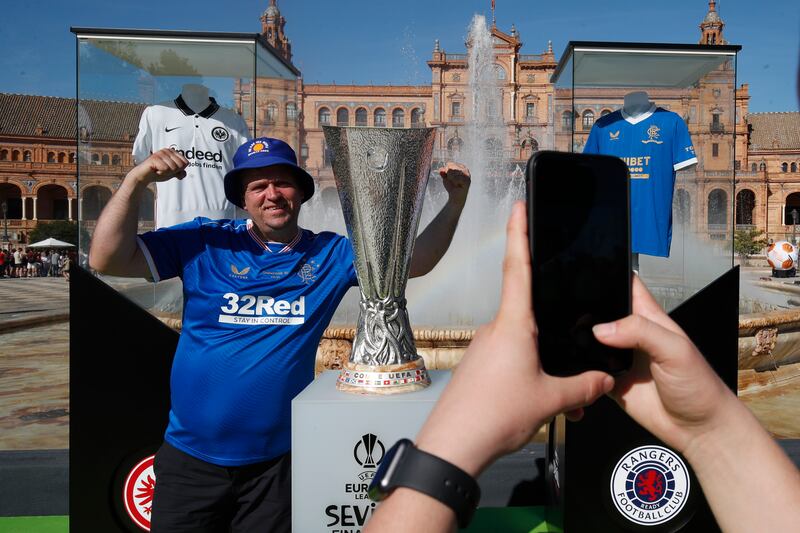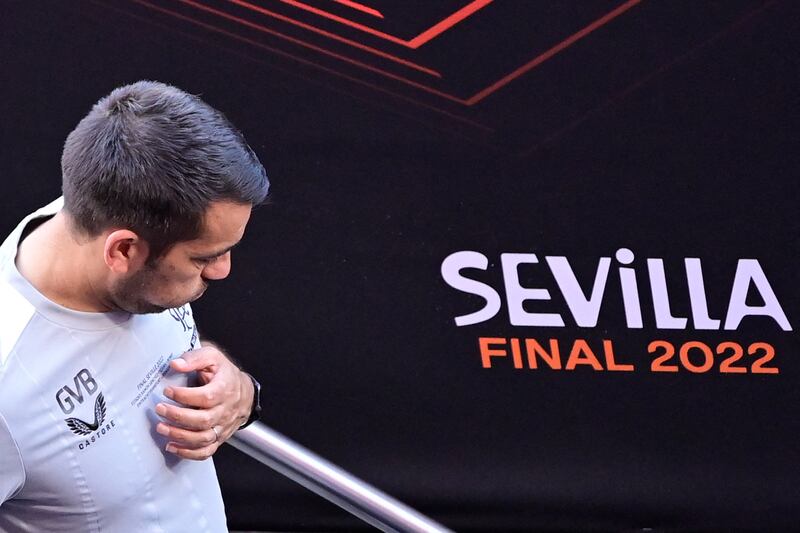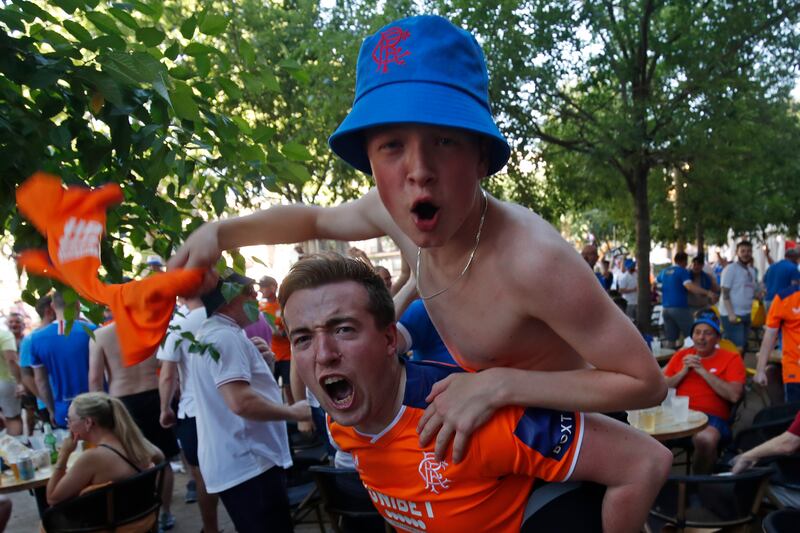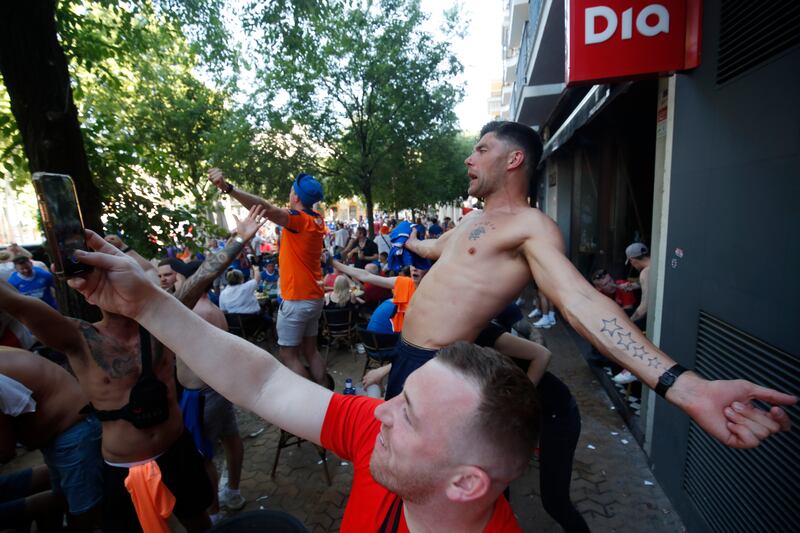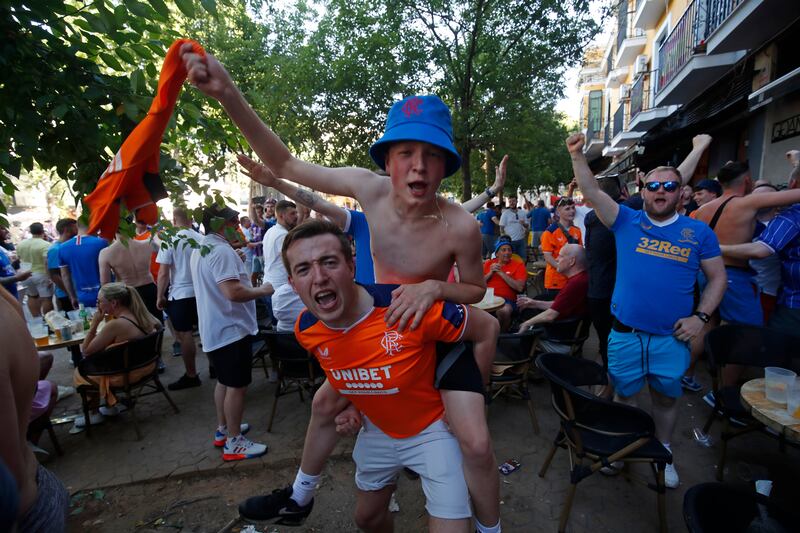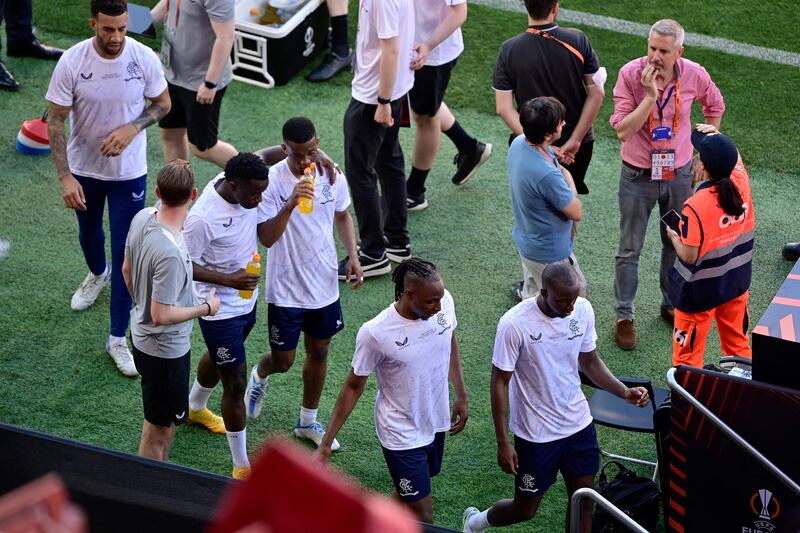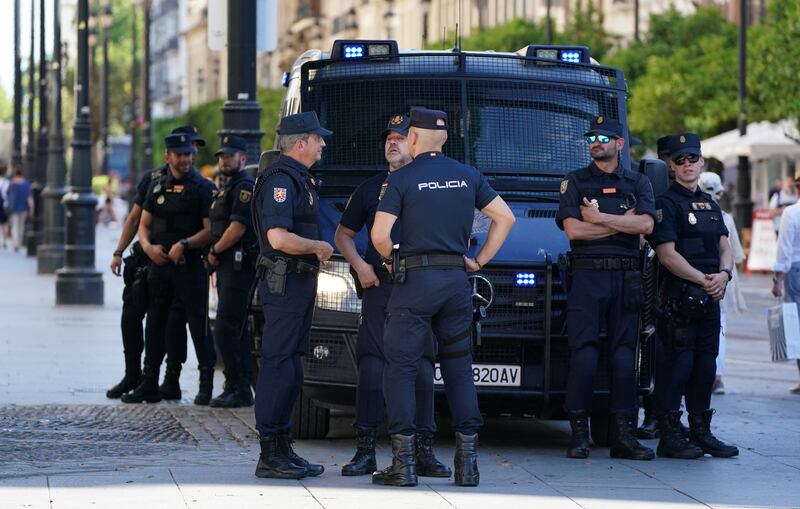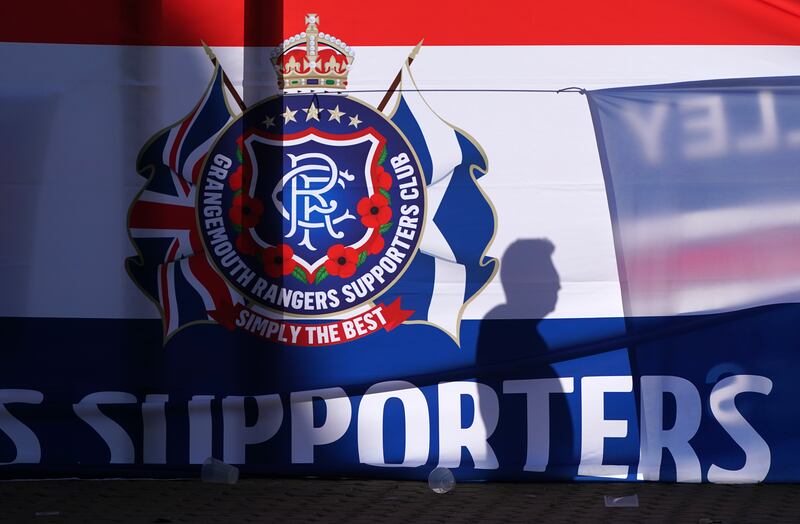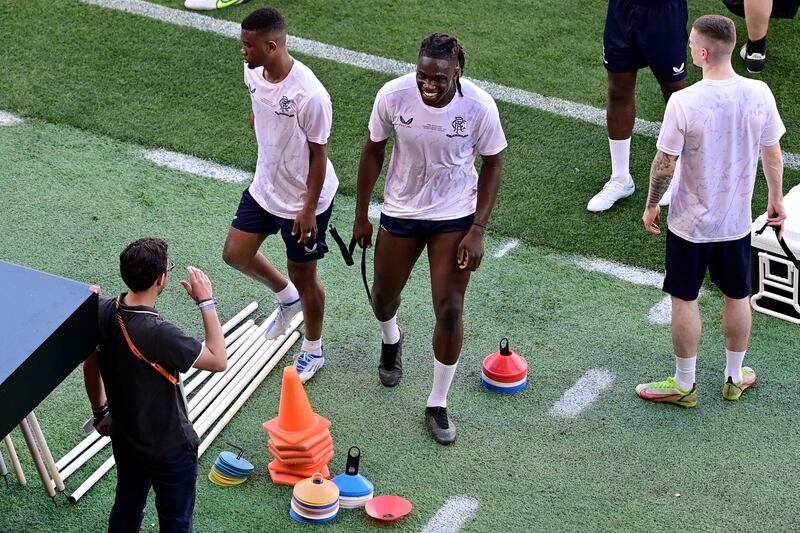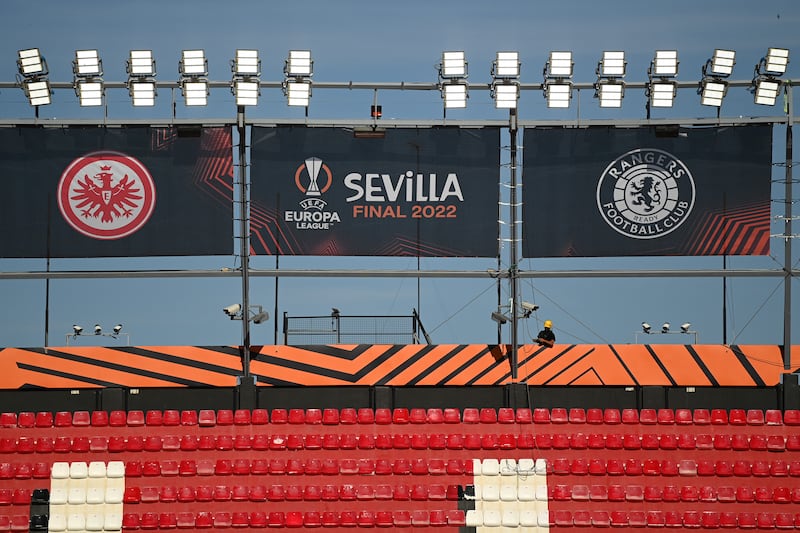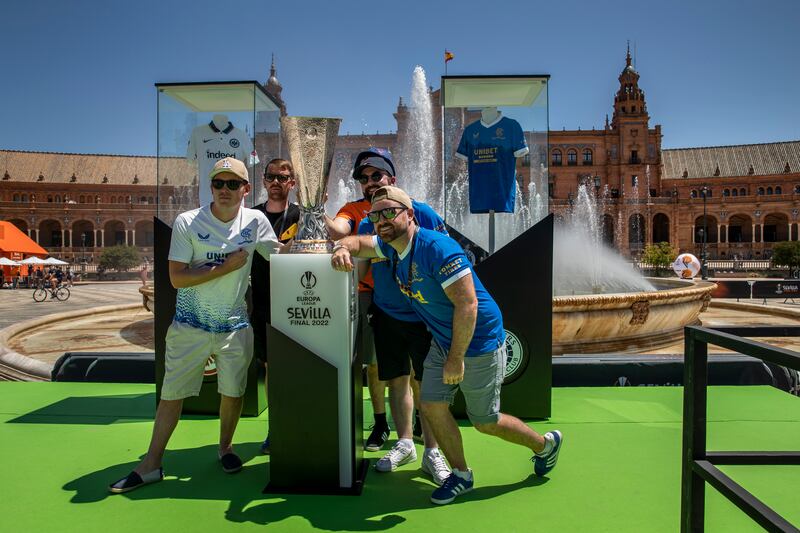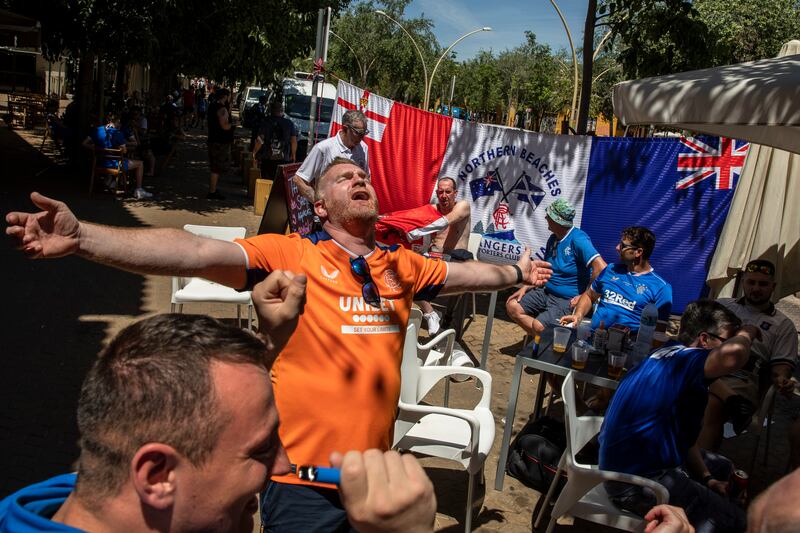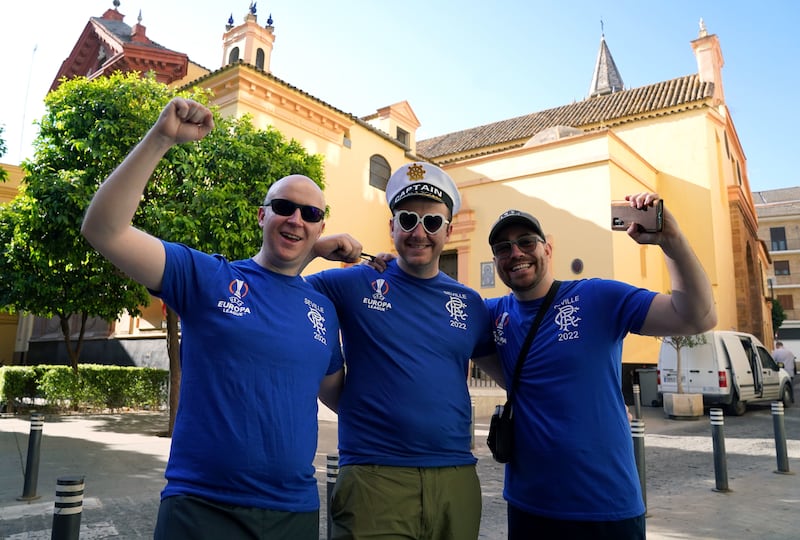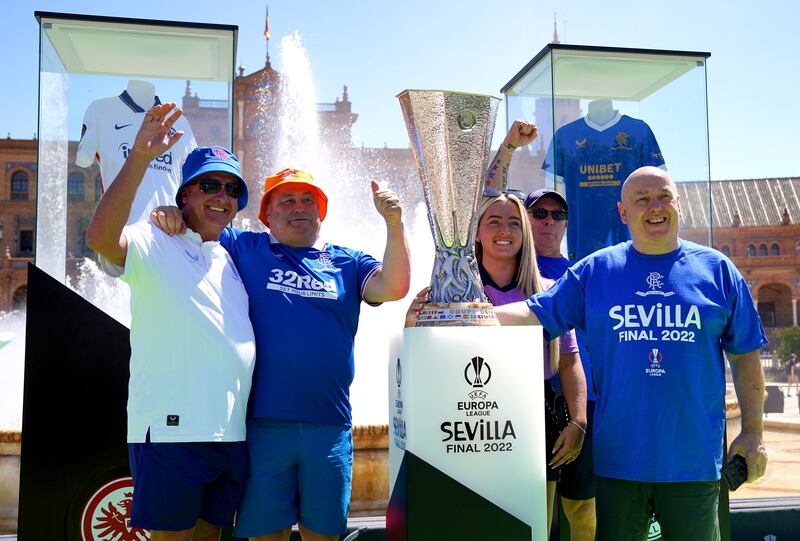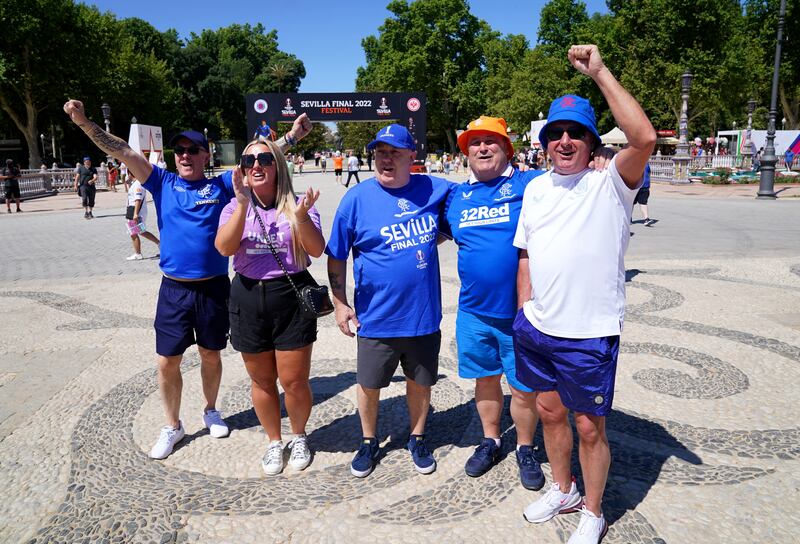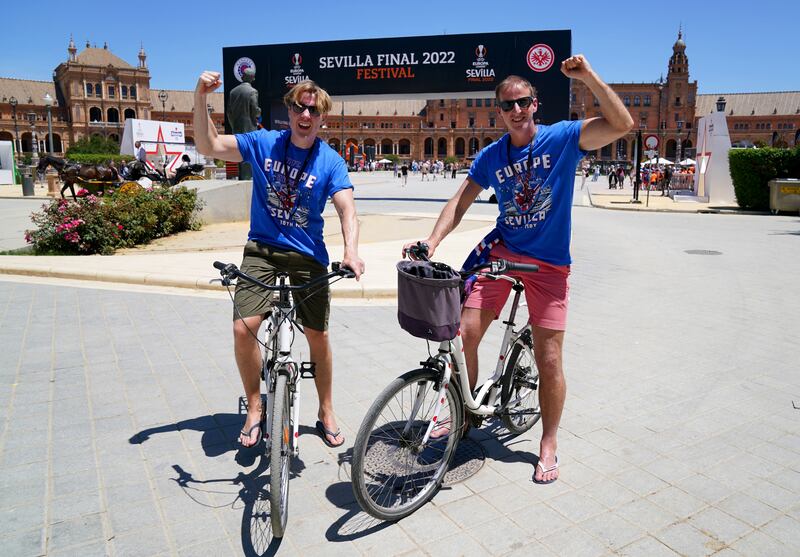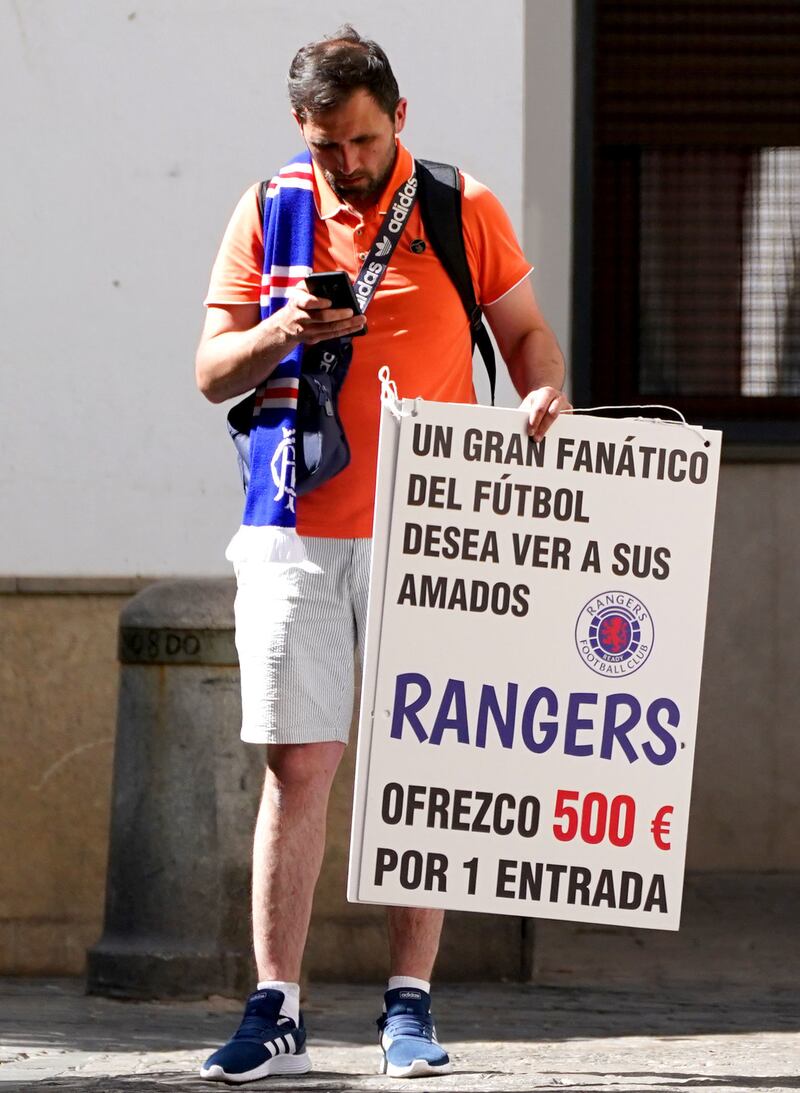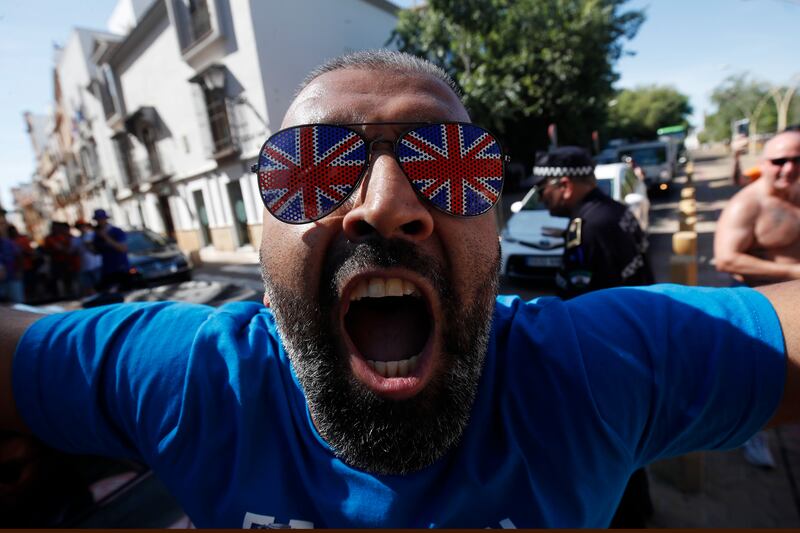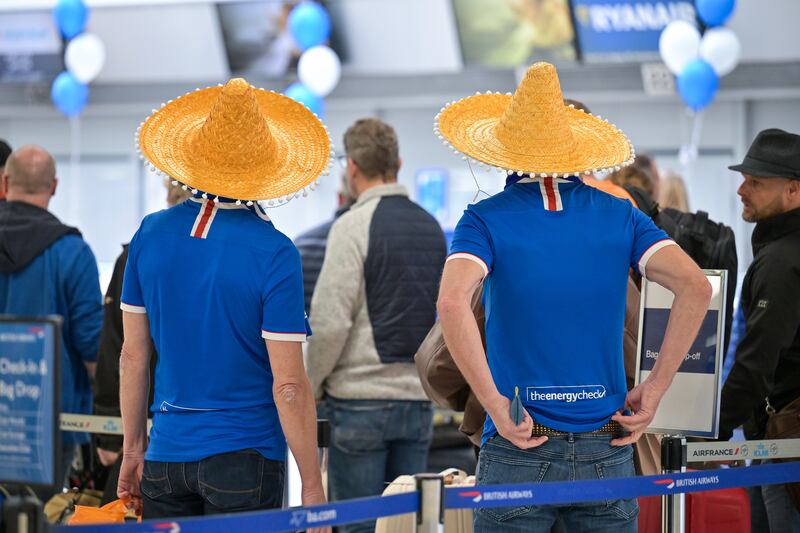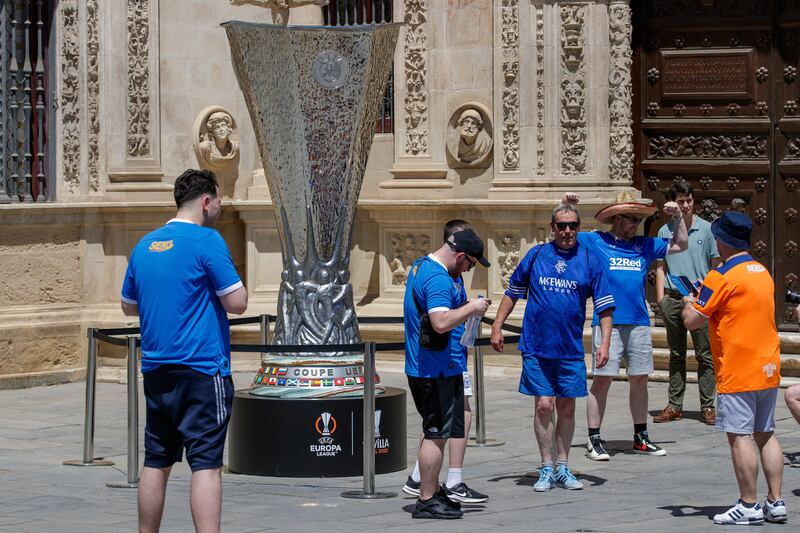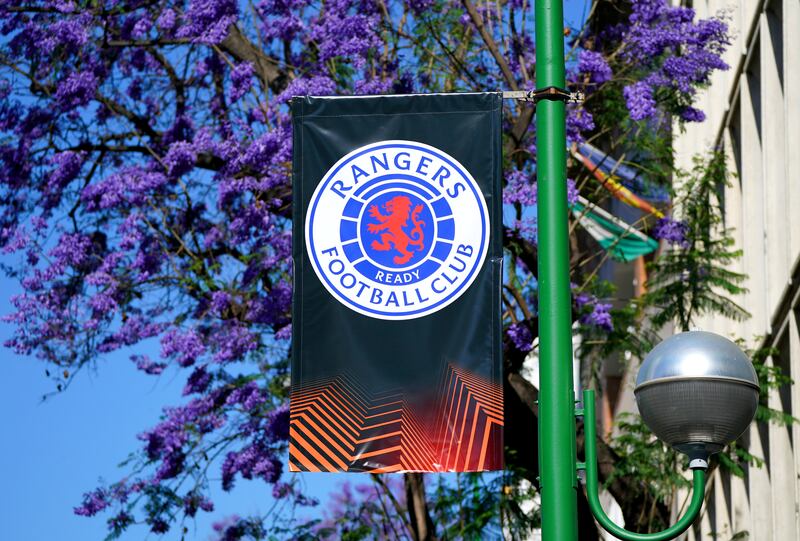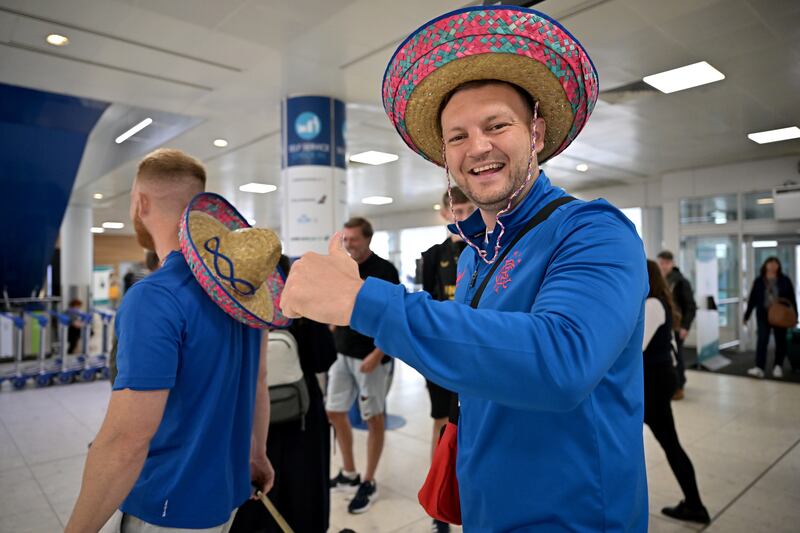Up to 100,000 Glasgow Rangers supporters are expected to have arrived in Seville by the end of Wednesday afternoon, the vast majority of them simply to be somewhere in the broad vicinity of the Ramon Sanchez Pizjuan Stadium. Its capacity is a little over 42,000 and the allocation of tickets for fans of the Europa League finalists was capped, officially, at under 10,000 for each.
Happily, Seville is a city of abundant football arenas. Close to 60,000 supporters of Eintracht Frankfurt and Rangers will watch a big-screen broadcast at La Cartuja stadium some three kilometres from the live action. That still leaves plenty seeking bars and restaurants with a television.
Safe to report that the capital of Andalusia will experience the sort of night it has known only once this century, when La Cartuja hosted the 2003 Uefa Cup final between Porto and Celtic, the Scottish club losing 3-2. Naturally, that was an outcome noisily celebrated by followers of Rangers.
But the boasts and taunts across Glasgow’s fevered rivalry have for most of the last 20 years been contained within the confines of Scotland’s domestic game, across cups and a league ranked by Uefa as only the ninth strongest in Europe. Rangers did reach a Uefa Cup final in 2008, losing to Zenit Saint Petersburg, but the journey to this evening started from a very low place indeed.
A decade ago, the club were preparing for a season in the Scottish third division, effectively the fourth tier. They had gone into liquidation, the consequence of chronic financial mismanagement. Their closest chasers for the main prize – promotion – in the 2012/13 campaign were not Celtic but Peterhead, whose Balmoor Stadium in Aberdeenshire has never known a crowd as big as the 4,850 who watched them host Rangers nine years ago. The first step back up the hierarchy was duly achieved, and the next step, winning League One, but Rangers would find themselves stuck in the second tier for two seasons.
They rejoined the top division in 2016, by which time Celtic were five titles into a run of nine successive league triumphs. In that lean, punitive period there were many agonising moments for many of the 100,000 who have flocked to southern Spain.
Like the evening Celtic defeated Barcelona in Glasgow in the Champions League in November 2012, a week after the official liquidation of Rangers, or least the company that had represented a club with 54 Scottish titles.
The 55th, under what is technically a new corporate entity, was claimed last season, with Steven Gerrard as manager. Another important aspect of Gerrard’s legacy was a renewed self-confidence in Europe. The year before his 2018 appointment, Rangers had been eliminated from the Europa League at the summer qualifying stage by Progres Niederkorn of Luxembourg. Or starkly put, by the fourth strongest team from what Uefa then ranked as the 46th best league in its territory.
Under Gerrard, Rangers would beat the likes of Galatasary, Porto and Feyenoord, share the points in group stage meetings with such as Villarreal and Benfica. By the time he left to take up the position as manager of Aston Villa earlier this season, supporters were becoming used to European campaigns lasting into the new year, a round or two beyond the Europa League group phase.
But what has happened under Gerrad’s successor, Gio van Bronkhorst, the former Rangers, Barcelona, Arsenal and Netherlands player, has exceeded the most ambitious dreams.
A survey of the clubs who embarked on the group phase back in September would have identified Napoli, or perhaps Leicester City or West Ham United, or maybe Lyon or Eintracht as the likeliest teams to advance deep in the competition. Rangers had failed in pre-qualifying for the Champions League by losing to Malmo.
They hauled themselves into the Europa League group phase via the narrowest aggregate victory over Alashkert of Armenia. Once Barcelona, Sevilla, Borussia Dortmund, Porto and RB Leipzig entered at the knockout phase, the Scottish representatives looked even more distant outsiders.
But under Van Bronkhorst, Borussia Dortmund were beaten 4-2 in Germany and RB Leipzig saw a first-leg lead wiped out at Ibrox in a stirring semi-final in which James Tavernier, the Rangers captain, led the comeback and became, with his seventh goal in this Europa League, the competition’s leading scorer – from right-back. “Amazing,” says Van Bronckhorst of his skipper.
Those wins over leading Bundesliga clubs bode well for the challenge of Eintracht, who finished 11th in the German table. “They are physically strong, have pace up front and are good defensively,” says the Rangers manager. “We have to respect their quality. But we have the character and belief for this final.”
